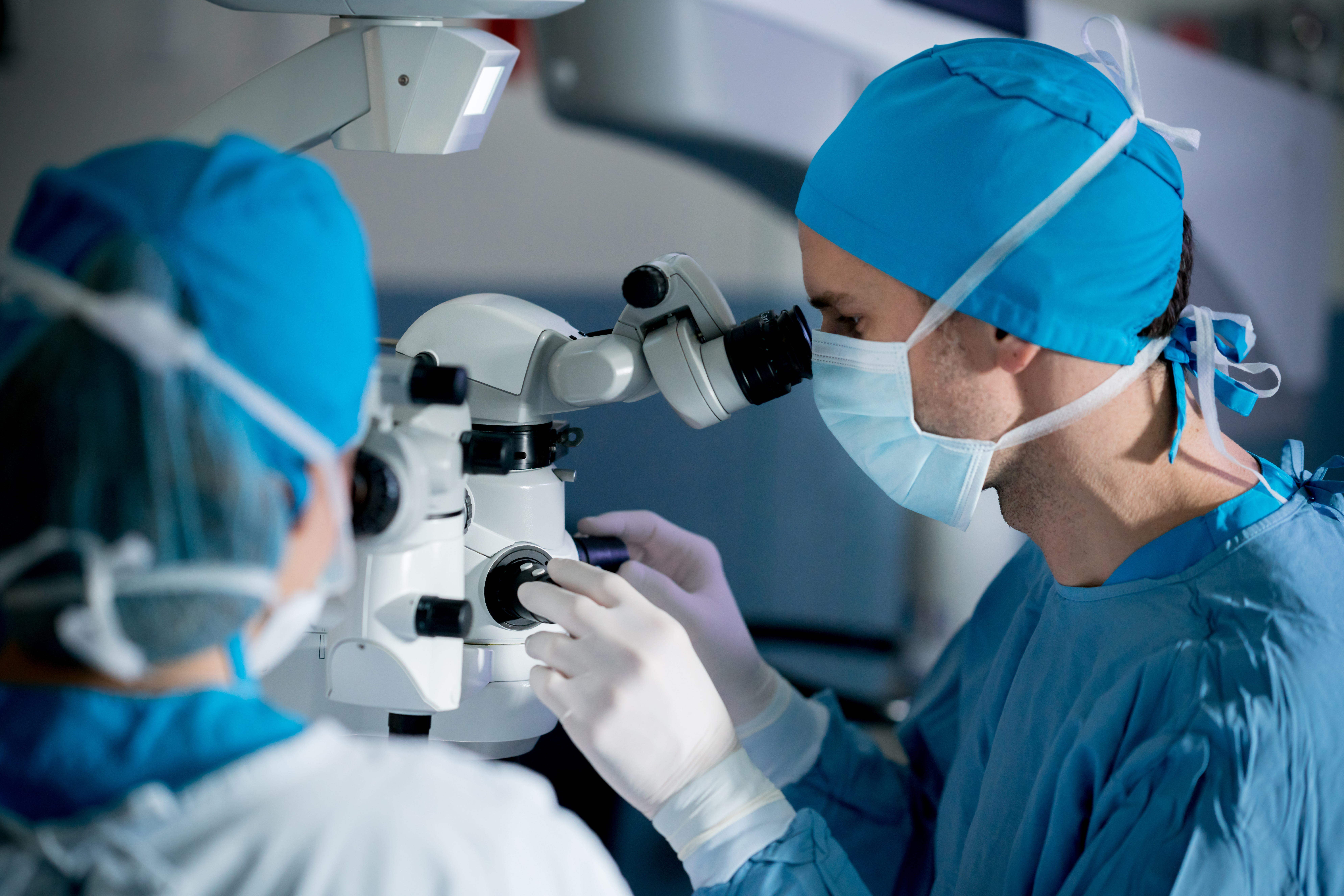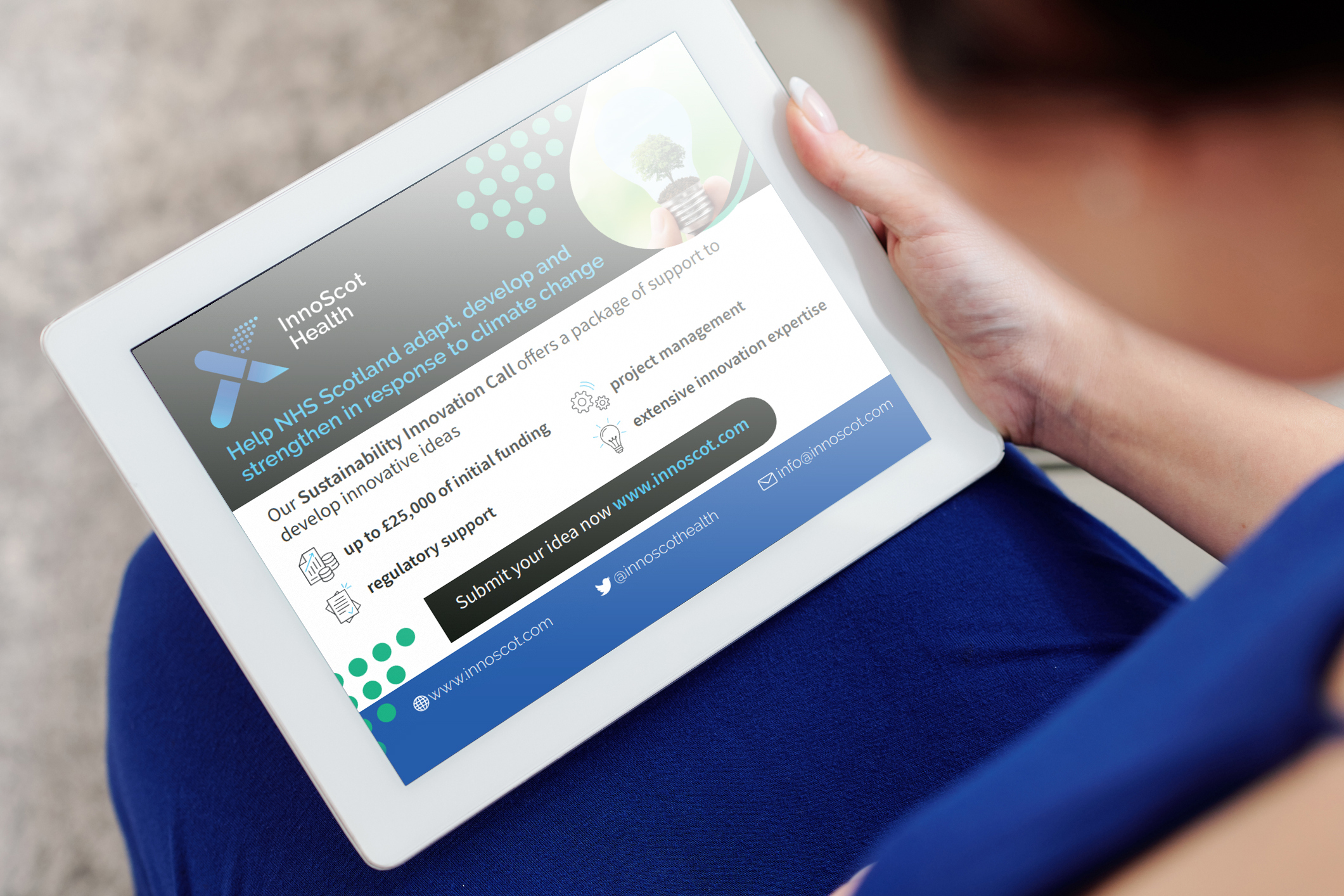
Innovative ophthalmic solutions a priority for tackling pandemic backlog this World Sight Day
Graham Watson, Executive Chair at InnoScot Health, discusses
Ophthalmology was undoubtedly one of the healthcare areas which suffered significantly during the pandemic.
As patients were left unable to see ophthalmologists and optometrists for face-to-face appointments, waiting lists and backlogs inevitably grew, and some individuals with eye problems saw a worsening of their condition. Indeed, those with chronic long-term eye diseases such as glaucoma account for over 60,00 patients in Scotland.
Other particular areas of concern include diabetic retinopathy, age-related macular degeneration, or AMD, (wet and dry), and cataract which is now believed to account for the majority of outpatient appointments.
It is only now that we are beginning to see a return to normal practice, but there remains a significant accumulation of people still requiring treatment.
Nevertheless, with the NHS recovery plan now firmly underway, it is easy to forget that considerable progress was made in ophthalmology prior to the pandemic.
Remarkable, unprecedented advances are continuing to take place, from surgical techniques and the equipment used, to the ability to manage long-term conditions that were nearly impossible to treat not far into the past. There is much to be optimistic about.
With that in mind, InnoScot Health is holding a briefing event on Thursday 13 October to coincide with World Sight Day, addressing the need for innovative, eye solutions and encouraging NHS Scotland’s diverse workforce to come up with new ideas that could help improve patient care.
World Sight Day aims to “ensure eye care is accessible, inclusive and affordable to everyone, everywhere,” and InnoScot Health’s innovation call chimes perfectly with those aims.
Both the World Health Organization’s World Report on Vision and the UN Resolution on Vision have pinpointed eye health as critical to achieving Sustainable Development Goals.
Here, innovative ideas are needed to make a difference in the field of ophthalmology and potentially help to reduce the current backlog – and Scotland’s track record demonstrates a very positive performance in the creation of impactful ideas originating within the NHS.
Over the past 20 years ophthalmic innovations supported by InnoScot Health and involving working with NHS innovators have included Peekaboo Vision, an app created by NHS Greater Glasgow and Clyde; Multifocal Retinal Imager, developed in collaboration with Wideblue; and the iGrading platform, a diabetic retinopathy screening tool developed alongside NHS Grampian and the University of Aberdeen.

Watch our ophthalmology call briefing event
Our online briefing event gave attendees more information on our latest themed call.
Coinciding with World Sight Day, it offered a deep dive on the aims, and reasons behind, the ophthalmology call, and laid out the support available to health and social care staff submitting their ideas.
Globally, there are some great examples of ophthalmic innovation, and they can be fuel for Scottish inspiration.
Smart glasses are arguably paving the way with their use of several technologies to aid the visually impaired and blind.
Such smart assistive devices are starting to integrate technologies such as artificial intelligence (AI), machine learning (ML), and machine vision, and allow people suffering from macular degeneration, severe glaucoma, diabetic retinopathy, cataract, and other visual impairments, to identify and navigate objects or obstacles in their way.
These wearable devices are further offering proximity sensors to enhance safety and providing directions by taking advantage of global positioning system (GPS) technologies.
The NHS Recovery Plan notes that pre-pandemic ophthalmology was the largest hospital outpatient specialty, but a focus on enhancing primary care specialist services can now help reduce demand for acute services, in turn freeing up capacity in the acute sector.
One way to do this, the Recovery Plan says, is by managing significantly more patients in the community instead of in hospital. The recovery strategy includes an investment of £2 million in a range of innovative projects. This will increase to some £9 million per annum by the end of the five-year Plan and will include a new National Low Vision service for visually impaired people, provided by accredited community optometrists and dispensing opticians.
This service will enable more complex anterior (front) eye conditions to be managed by Independent Prescriber optometrists. Moreover, it will enable stable glaucoma and treated ocular hypertension patients to be discharged from hospital into the management of accredited community optometrists.
Innovative thinking is more important than ever to help mitigate ophthalmic demand. It is encouraging then that ophthalmic experts within NHS Scotland have predicted major changes to come – particularly in a shift from established ‘light of sight’ technology to digital presentations.
Here in Scotland, there has also been some early work around a new optical system for the slit lamp – a microscope with a bright light used during an eye exam – that is applicable to examination, surgery, and 3D transmission.
With many believing that ophthalmology will start to move towards mixed/virtual/augmented reality for examination and surgery over the next 10 years, effective, reliable headset technology will become more prevalent and the line between science fiction and ophthalmology could well start to blur.
The signs are encouraging right now in this ever more progressive area with Apple set to announce a headset that has more processing power than its top MacBook, and Meta set to update its Quest 2 headset.
Others predict that ophthalmic technology will be scaled down to smaller devices and, much like other areas of health and social care during the pandemic, it could lead to home-based ophthalmic monitoring, particularly useful for remote parts of Scotland.
Virtual clinics and technical apps could provide a stronger, more cost-effective link between the patient and clinician, allowing conditions to be observed for changes and, if worsening, allowing for an intervention to take place as soon as needed.
Could we soon have eye testing taking place in patients’ homes thanks to a VR headset that connects to a smartphone, remote clicker, and analysis software? The essential building blocks are already in place.
However, such breakthrough technologies must start with those who know the landscape best, with all of its challenges and opportunities.
At InnoScot Health, we believe that NHS Scotland’s expert ophthalmologists are best placed to identify where the unmet medical needs and bottlenecks in clinical ophthalmology lie – but do not necessarily have the required skillset to fully create the solution.
They face serious challenges every day and have the first-hand knowledge of what patients need most, but often lack the time required to innovate.
This is where collaborative relationships come in – in other words, bringing forward and tapping into the knowledge of those with the right expertise in project management, product development and intellectual property protection for instance, to develop and realise the full potential of an idea – resulting in innovation that can improve the lives of both NHS Scotland patients and clinicians.
Harnessing the joint power of clinical and commercial know-how in order to fully align great ideas with clinical requirements, while mitigating commercial risk during and after development is vital to innovation success.
Across NHS Scotland, rising patient demand is a major issue, and it’s no different in ophthalmology services. If that is to be overcome, then innovative new ideas will be key to unlocking the solution.

View our support
The behaviours of NHS Scotland’s 160,000-strong workforce will influence how the service mitigates and adapts to ophthalmic backlogs and heightened pressures; and so, encouraging this diverse workforce to come up with new ways of working is vital.
The package of support for health and social care staff with
ideas to support NHS Scotland includes £25,000 of initial funding,
regulatory support, project management and the innovation expertise of
InnoScot Health.
Chat